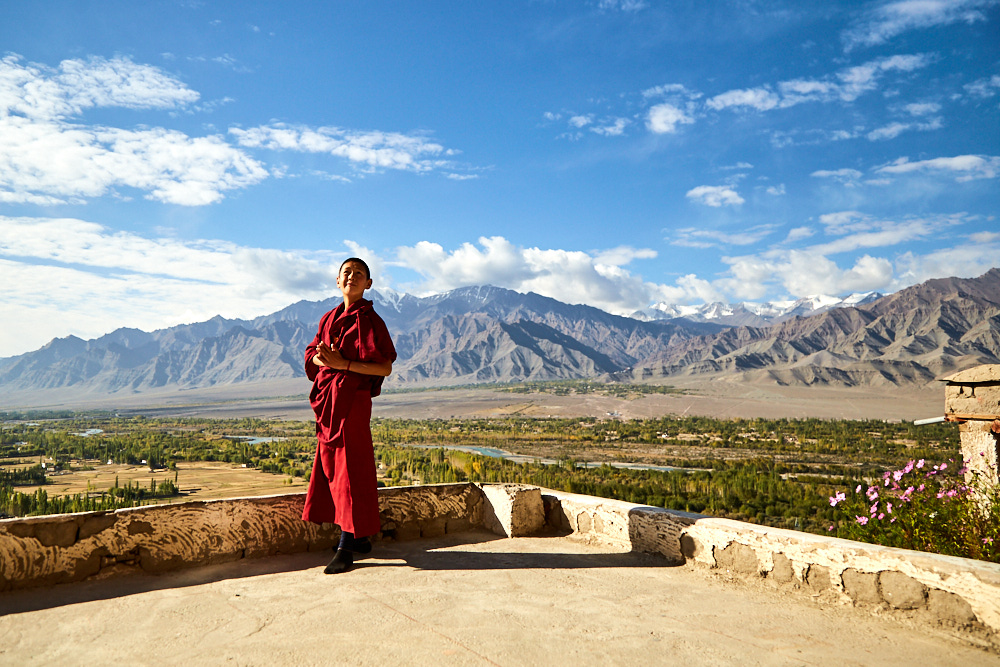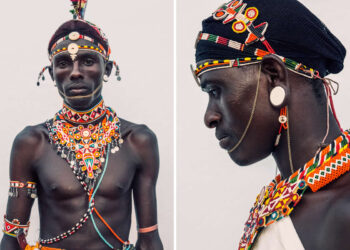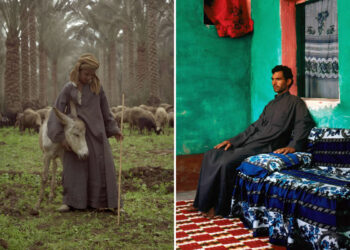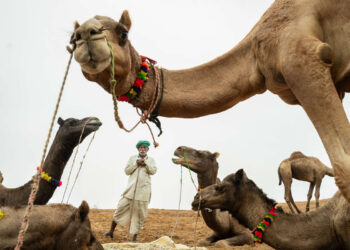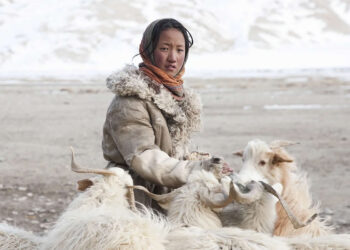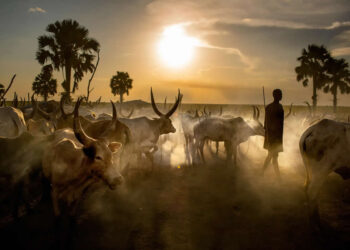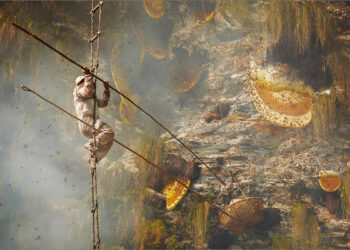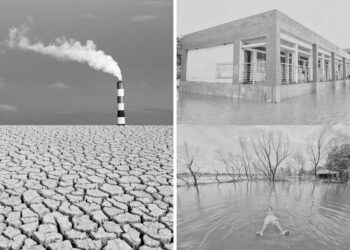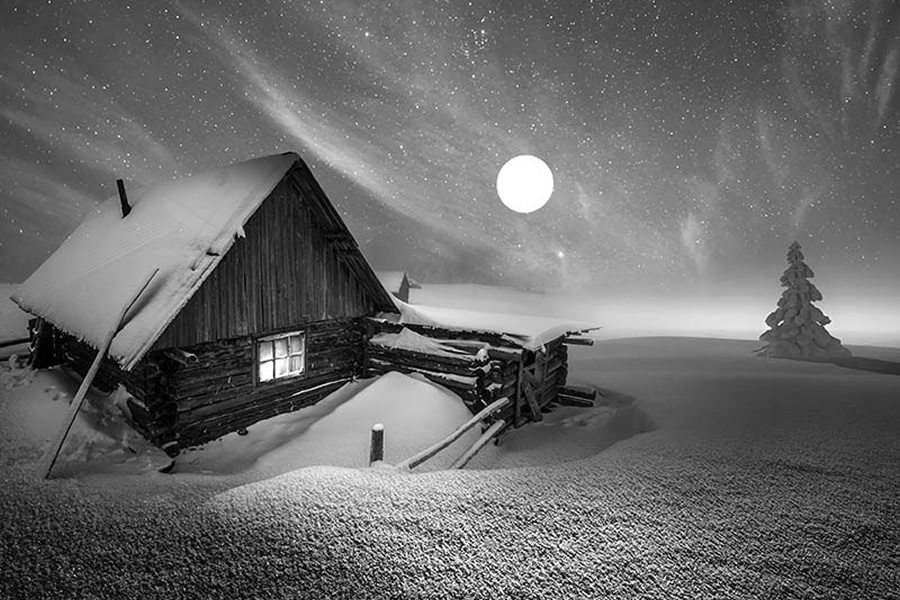Over the last few years, Ladakh is slowly becoming a hot topic for not only the locals and regional tourists but also for foreign nationals. Political and legislative changes aside the region are most popular for its ideal placement surrounded by the hills and valleys.
Bordering several nations the terrains and peoples along with their traditions change rapidly as one travels across the region. The villages are clustered across the land, some taking hours of strenuous drive to reach through the narrow unpaved Himalayan roads with occasional sights of vehicles fallen to their demise. In peak winter months some parts get essentially cut-off from the remaining along with their essential supplies and medical care.
All the odds against the travel aside Ladakh managed to flourish as one of the premium tourist destinations, thanks to its centuries-old history, countless monasteries with rich traditions, serene landscapes, unique wildlife, wonderful people greeting everyone with a “Juleh”, etc. This is a short cross-sectional photo-documentary work giving a general overview of the region.
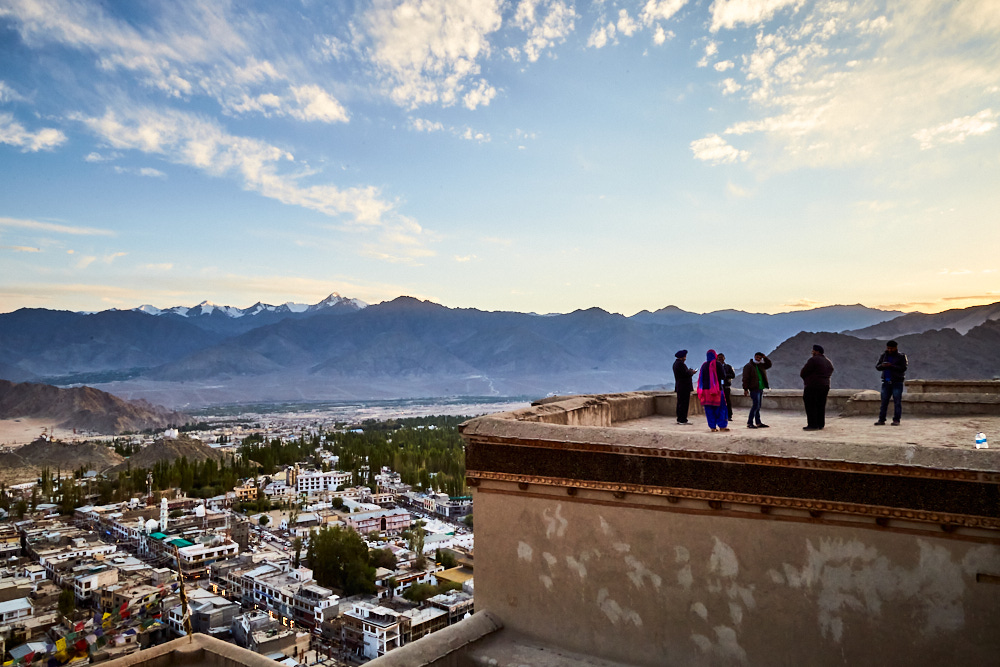
Tourists standing on the top of Leh palace. In the recent past, this Himalayan outpost has become a popular tourist destination for the majority of local tourists, thanks to several movies shot in the region.
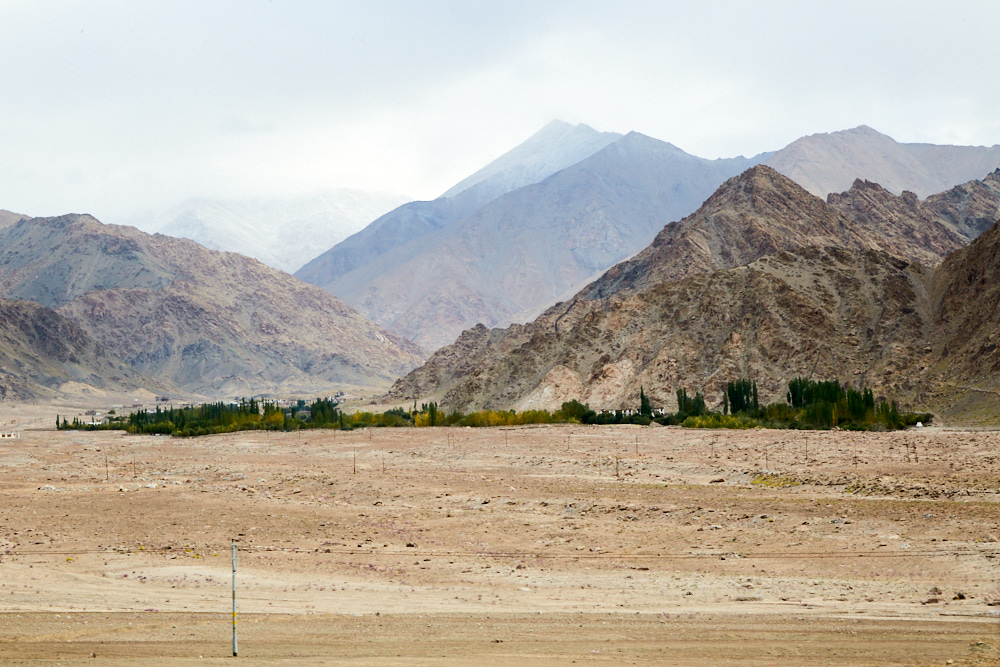
A small village out in a barren land surrounded by hills.
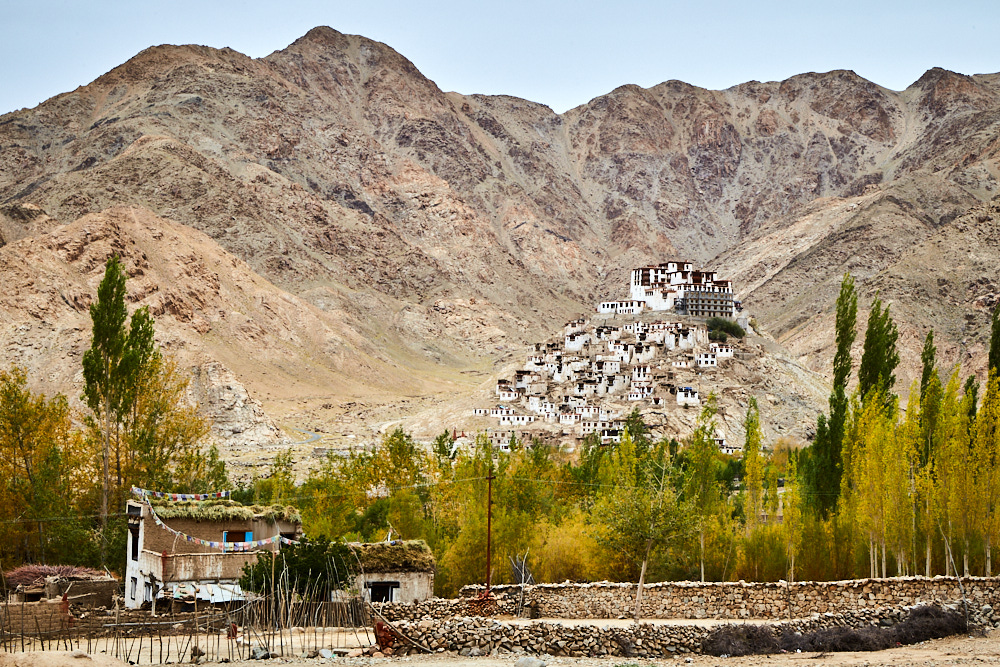
A Buddhist monastery complex on a hill overlooking the villages.
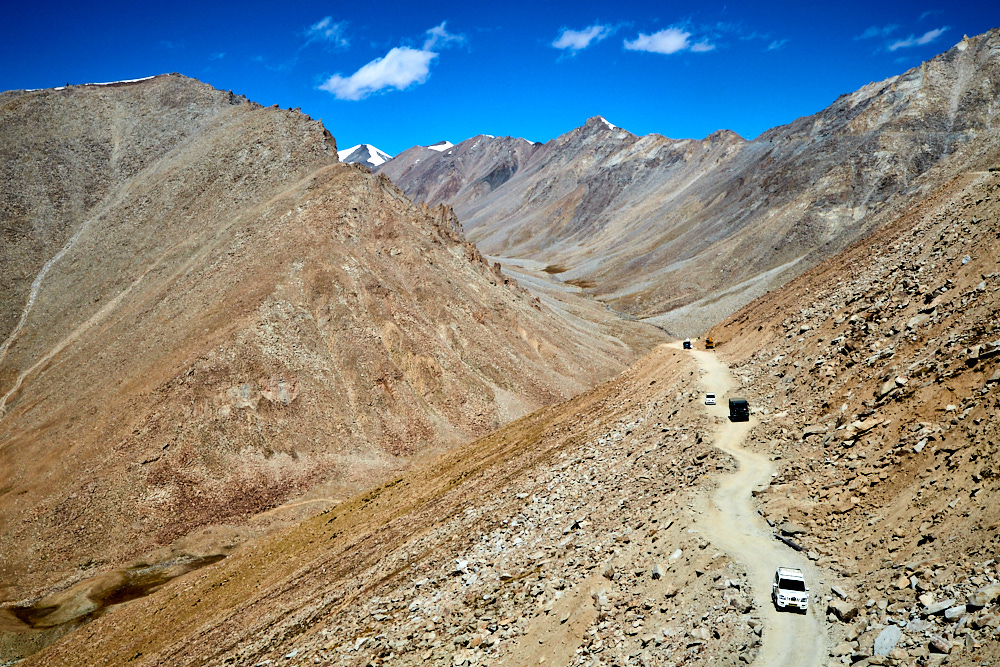
Narrow roads connect the various localities in the Ladakh region. This particular road leads to Nubra valley from Leh and will pass through the world’s highest motorable road at Khardung la.
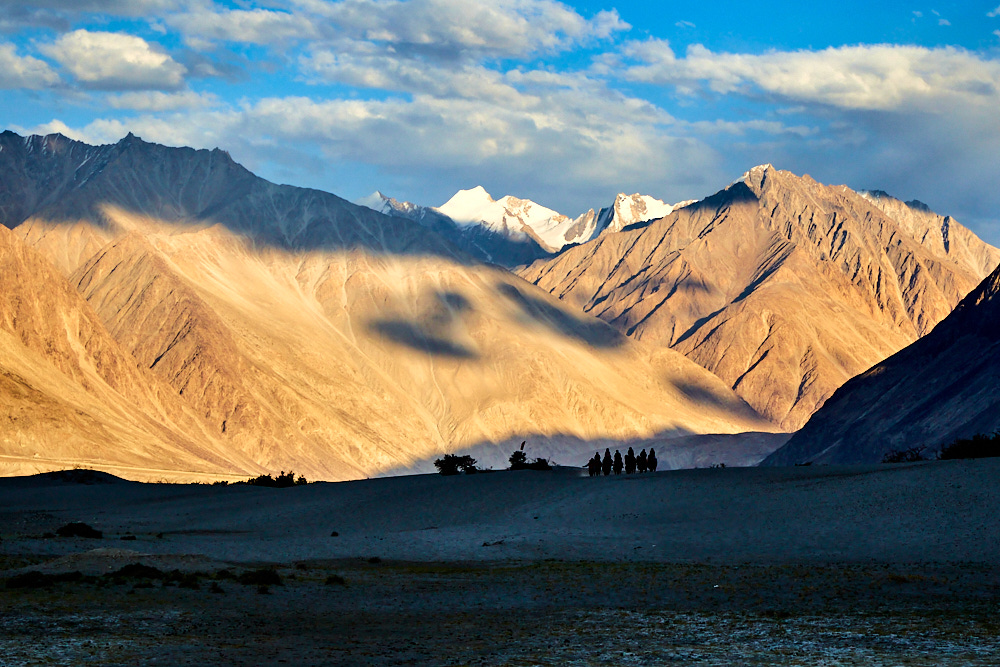
Nubra valley is formed by the surrounding Karakoram mountain ranges. This region was once a part of the ancient silk route.
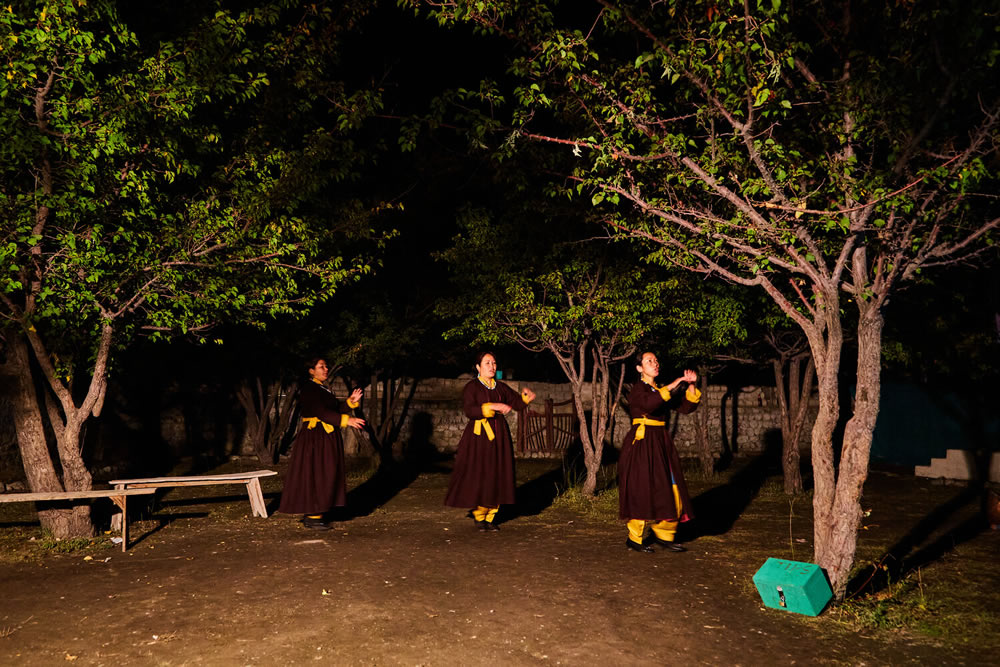
Ladakhian women performing a traditional dance for the tourists. Interestingly traditional costumes are still in use in many of the villages.
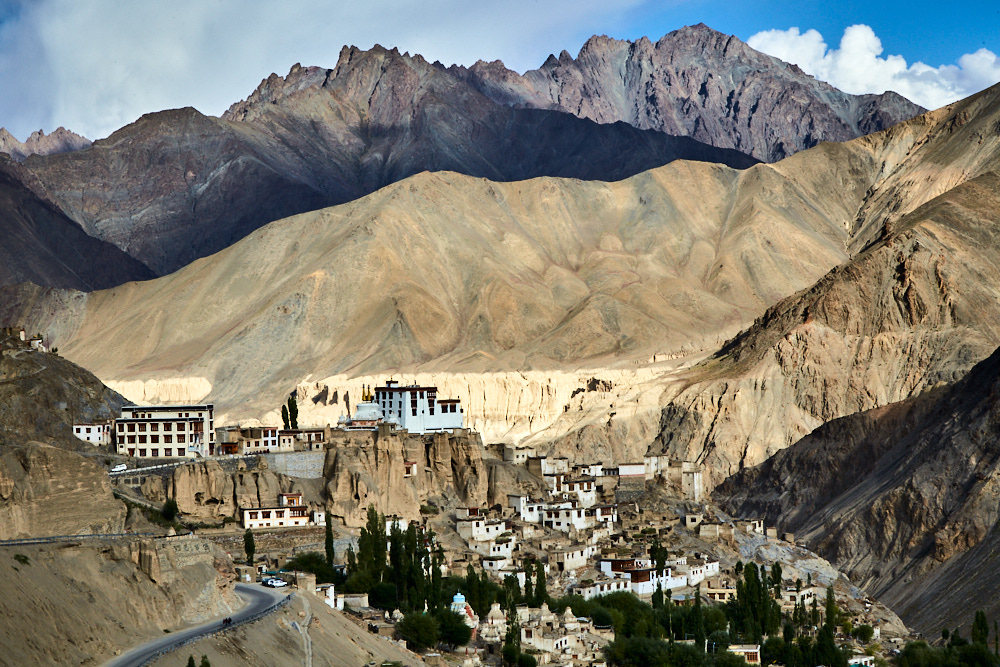
Lamayaru monastery, one of the prominent monastery complexes in Ladakh surrounded by the Himalayan landscape.
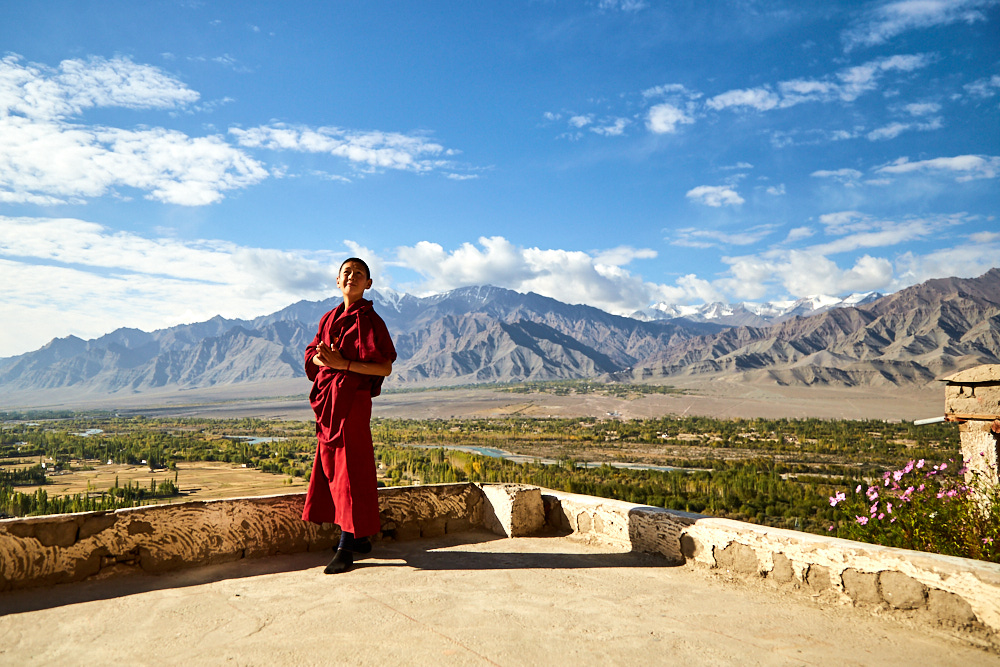
A novice monk doing morning prayers looking at the sun. They follow the traditions of Mahayana Buddhism.
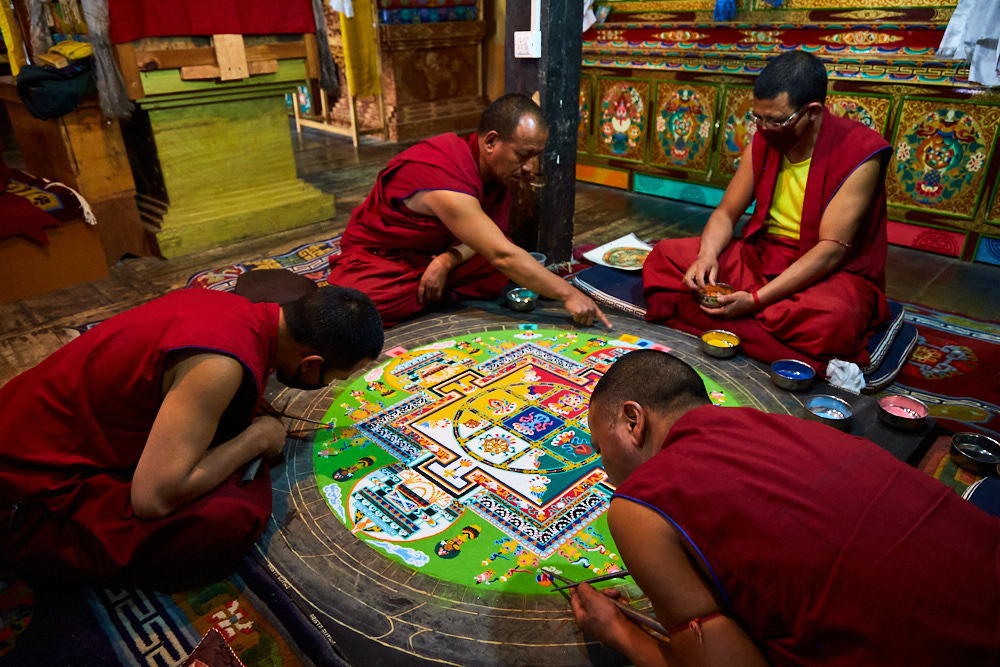
Mandala is a spiritual representation of the universe. Performing a mandala art is not a common occurrence, but a fascinating sight if one is lucky enough to be in the right place at the right time. Few monks creating a mandala in the Thiksey monastery.
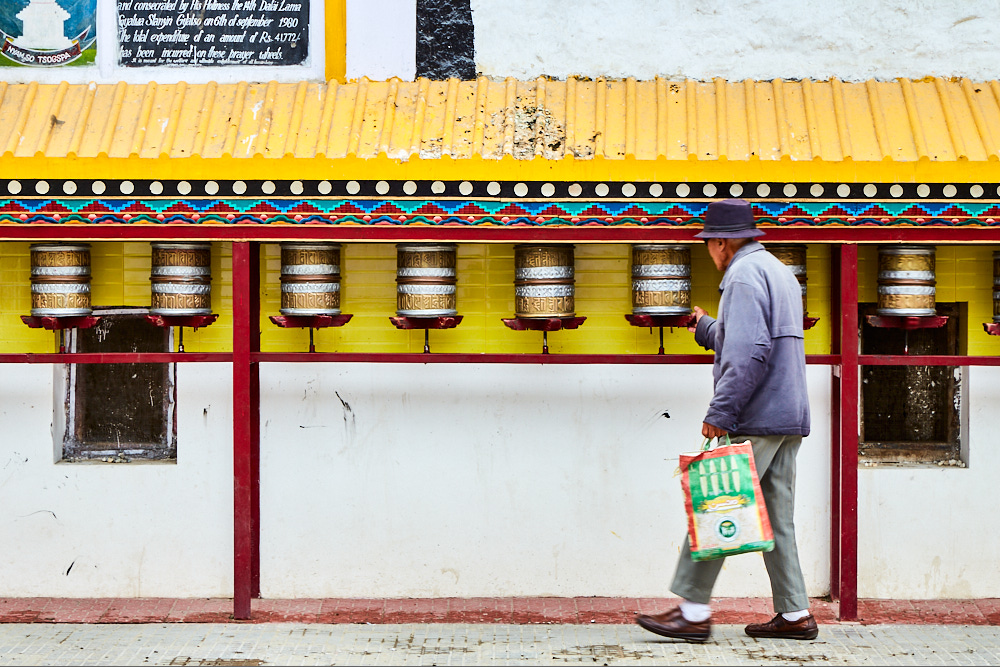
Ethnic Tibetans contribute significantly to the population. They consider His holiness Dalai Lama as their spiritual leader, who is now in exile from Tibet after the Chinese invasion.
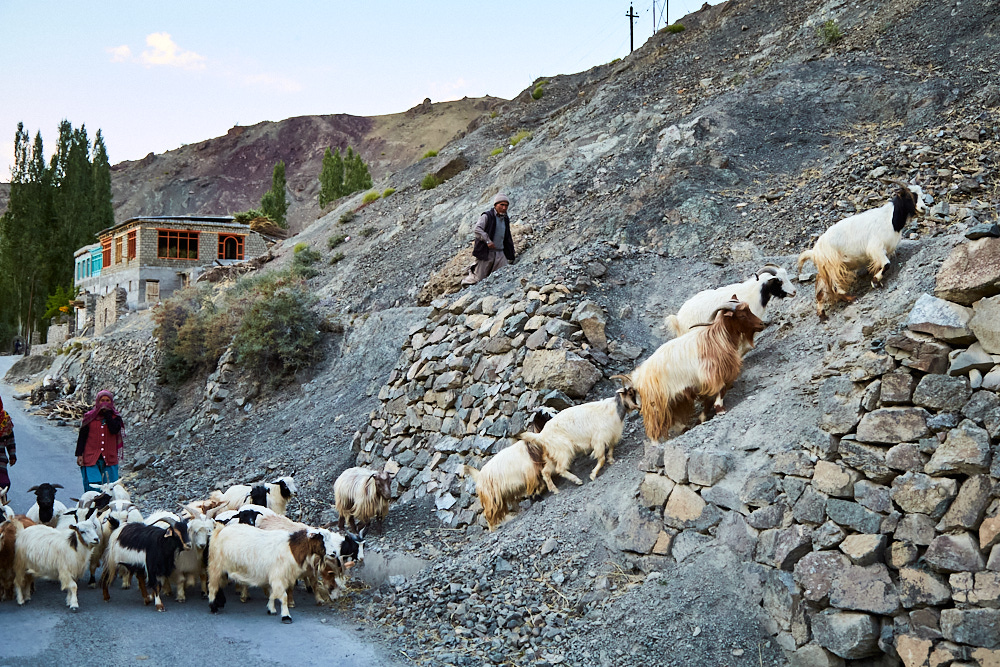
A group of ethnic Muslims herding their cattle back home at dusk in a village near the Pakistan border.
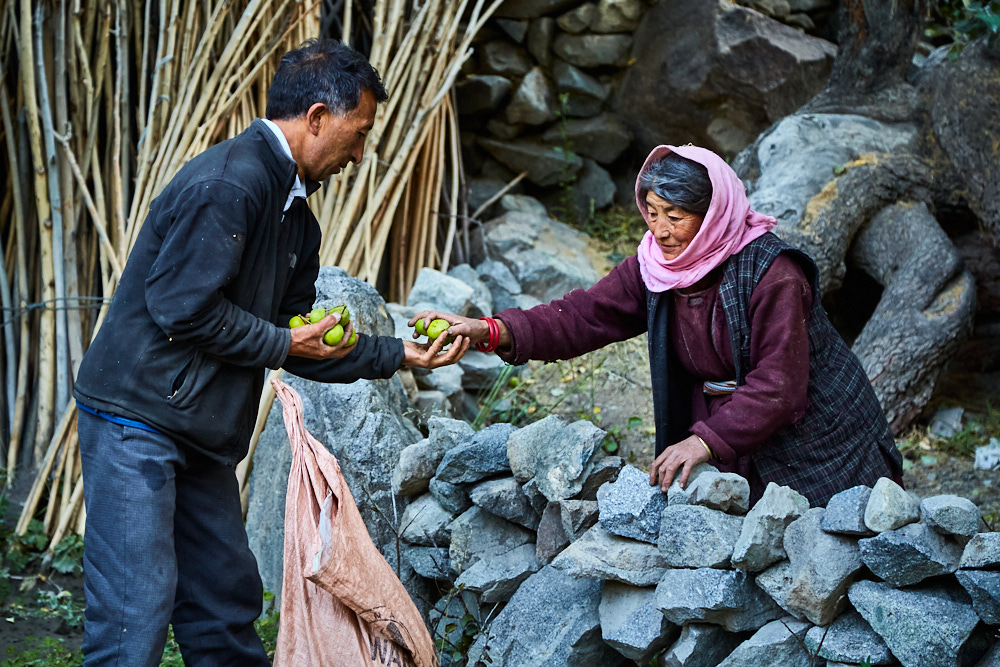
I see generosity, contentment, and kindness as few of the pillars the Ladakhian community is formed on. This woman called a passerby to give a handful of fresh pears from her backyard. Inevitably I was the next.
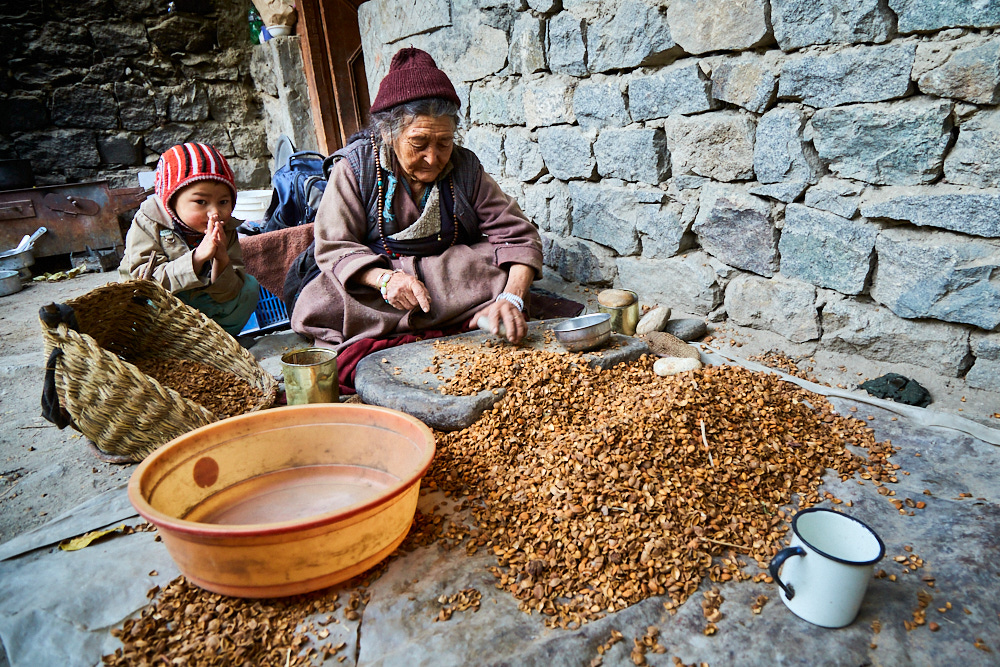
Old age is a common term in the region. Elders contribute significantly to the upkeeping of the family and mostly self-dependant. An elderly woman making almond oil.
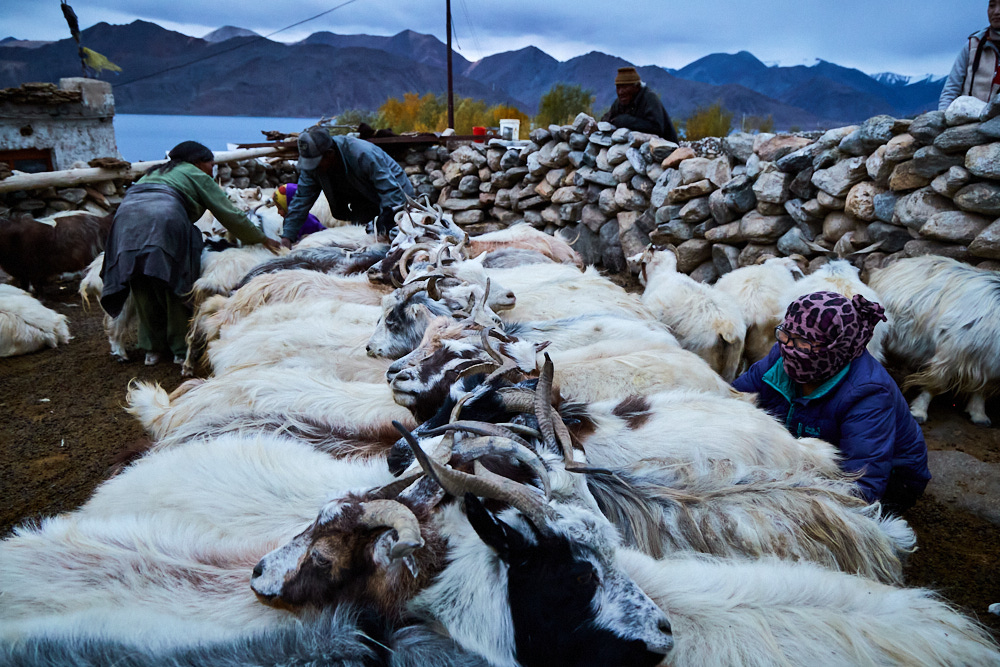
Pashmina wool is one of the major income sources for many of the nomadic herding communities. A group of herders tying the pashmina goats together at dusk as few start to milk the animals.
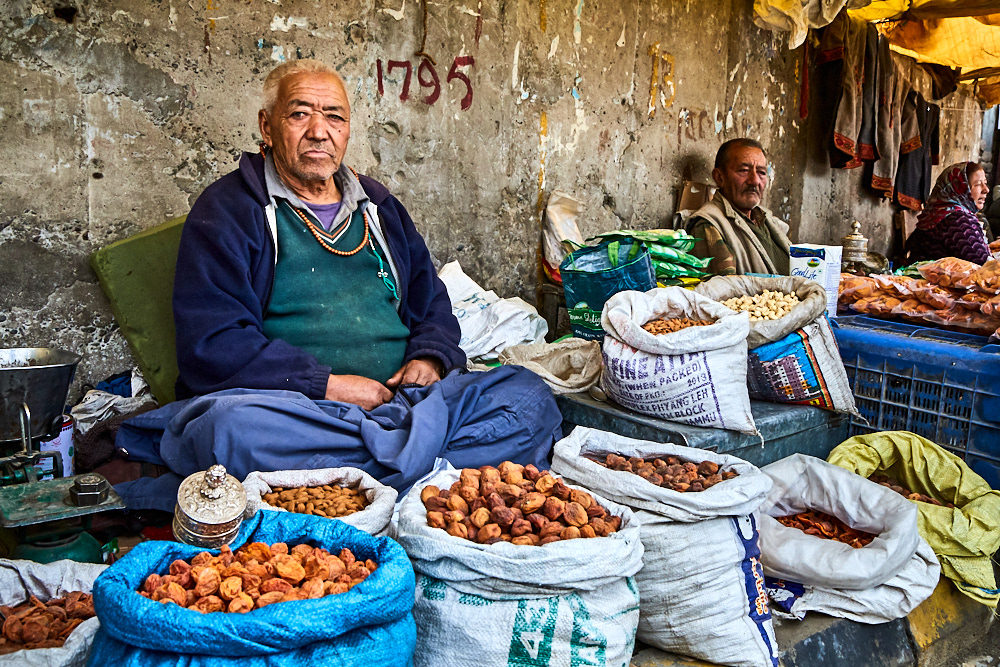
Markets in the capital city of Leh receive products from all over the region and far away from other parts of India. A dried fruit seller in Leh.
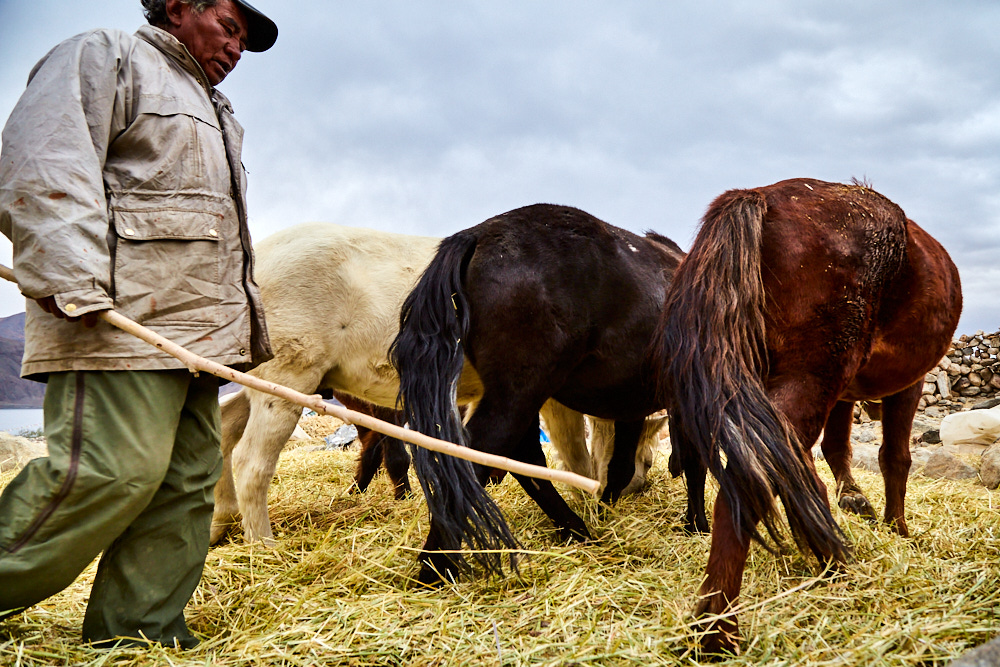
A farmer guiding the horses over the piles of straw after the harvest.
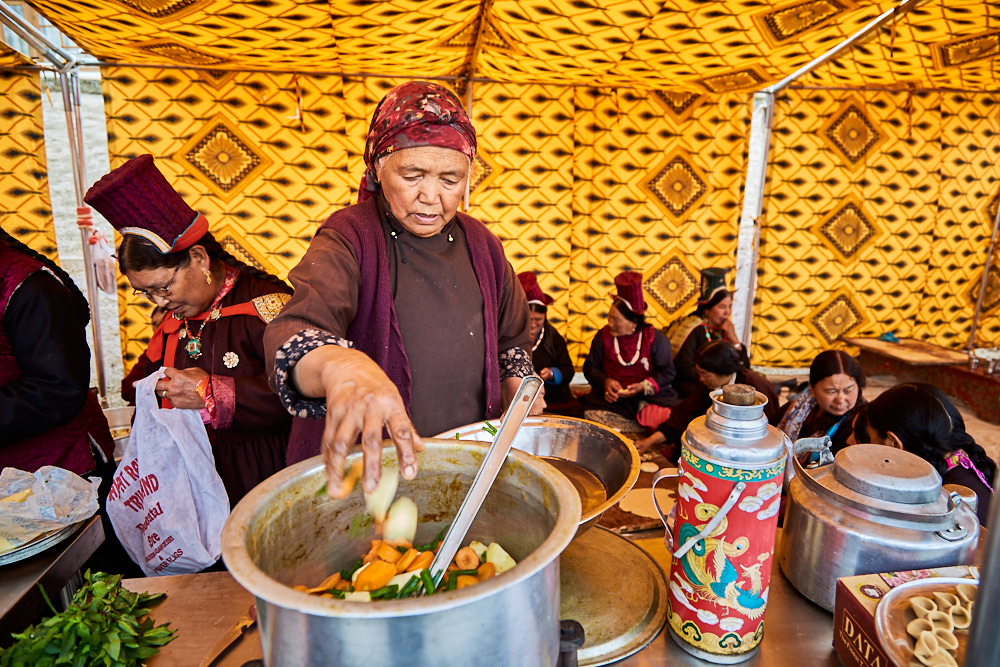
With tourism booming the local council has organized several events around the year. Group of women making traditional food at such an event.
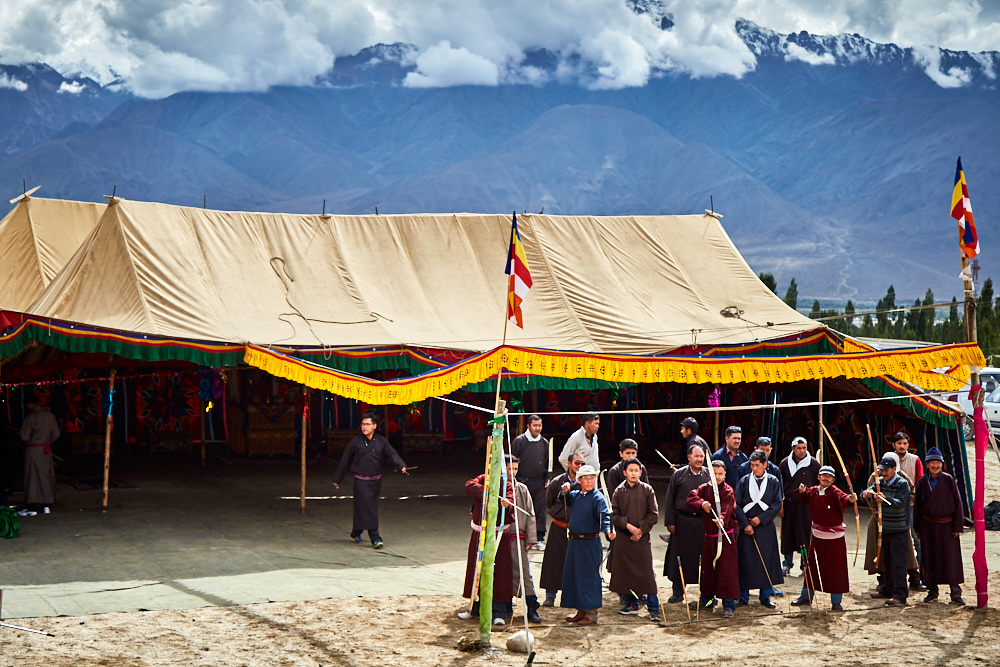
A group of men participating in an archery competition in Leh during a local festival.
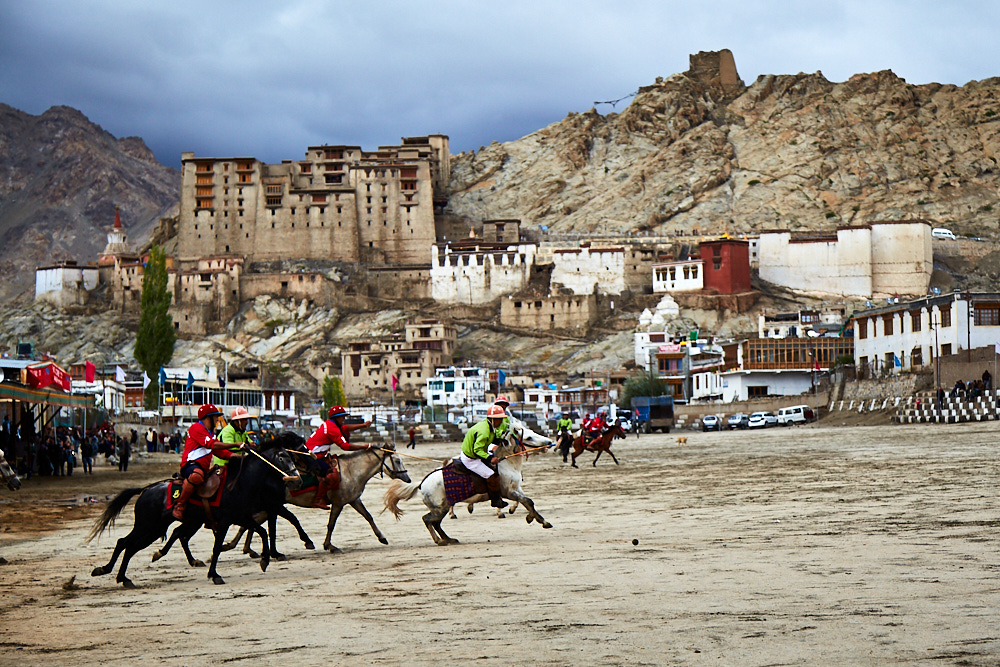
An annual polo game being played in the capital city of Leh.
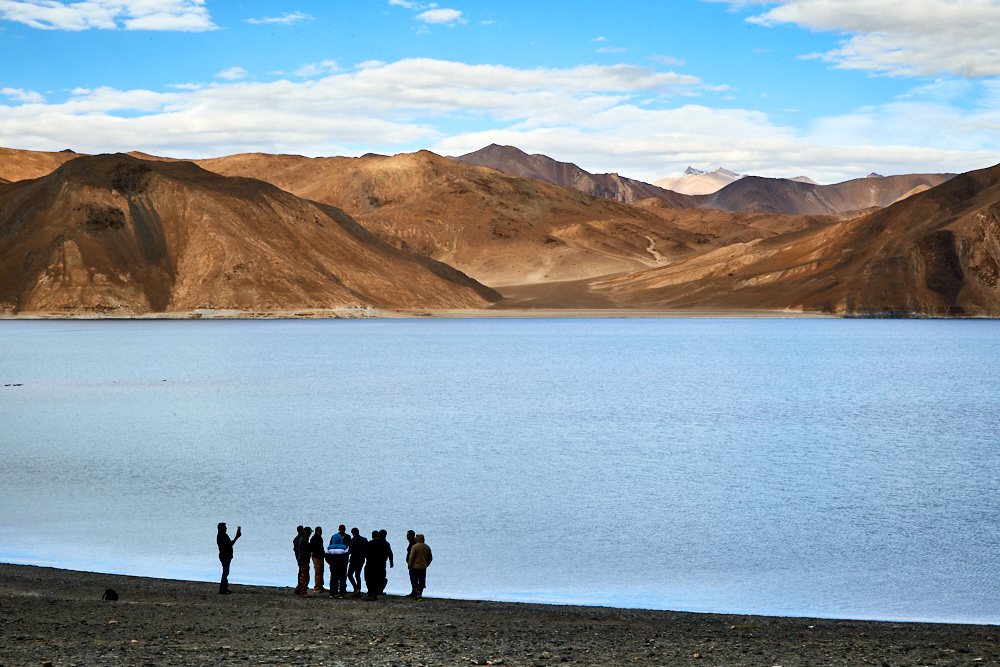
Pangong lake is the world’s highest saltwater lake and extends till bordering the Tibet and China. It is also the site at which the closing scenes of the famous Three idiots film was shot. Now its occasionally being called as Three idiots lake and the film was one of the most important drive of tourism to the region.
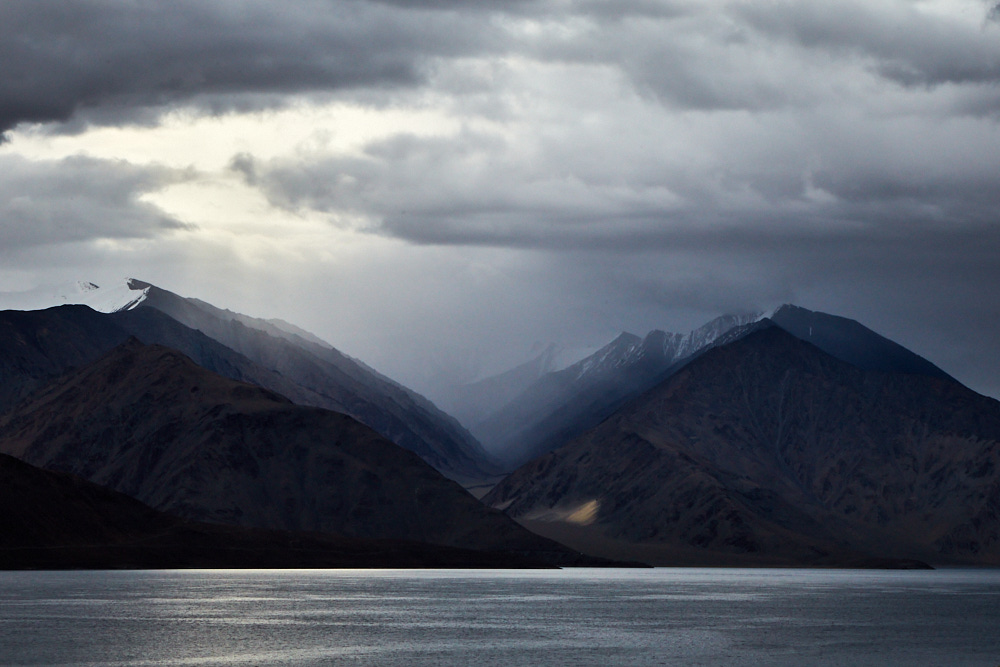
The landscape on the other side of the Pangong lake contributes to the Indian border with China.
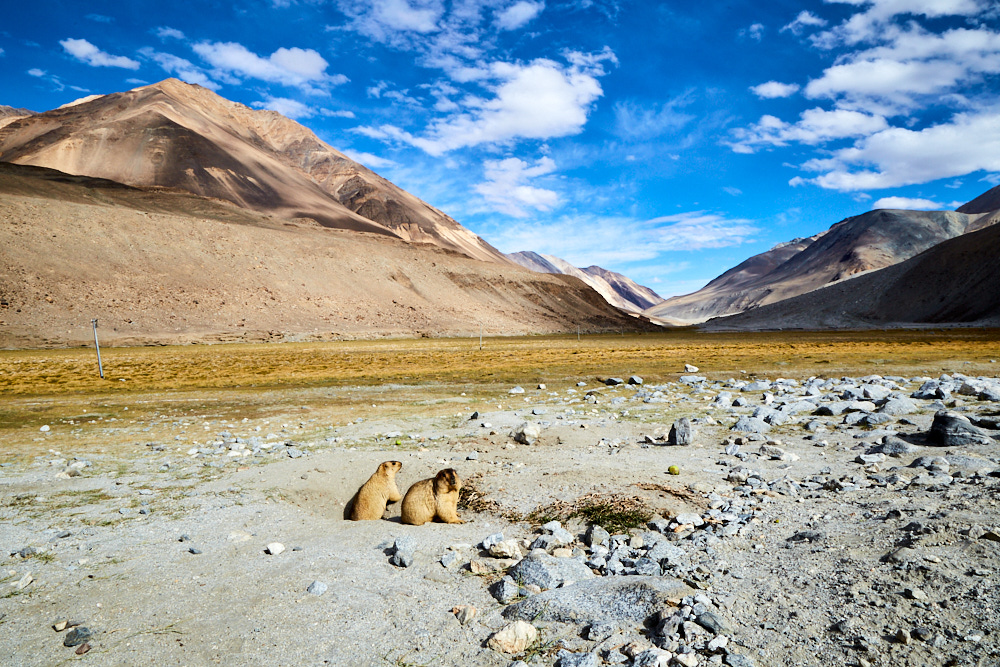
Landscapes are abundant and are one of the main reasons for the majority of the tourist influx. It in-turn brings unwanted interference as well. These Himalayan marmots are now used to the apples being offered by the tourists.
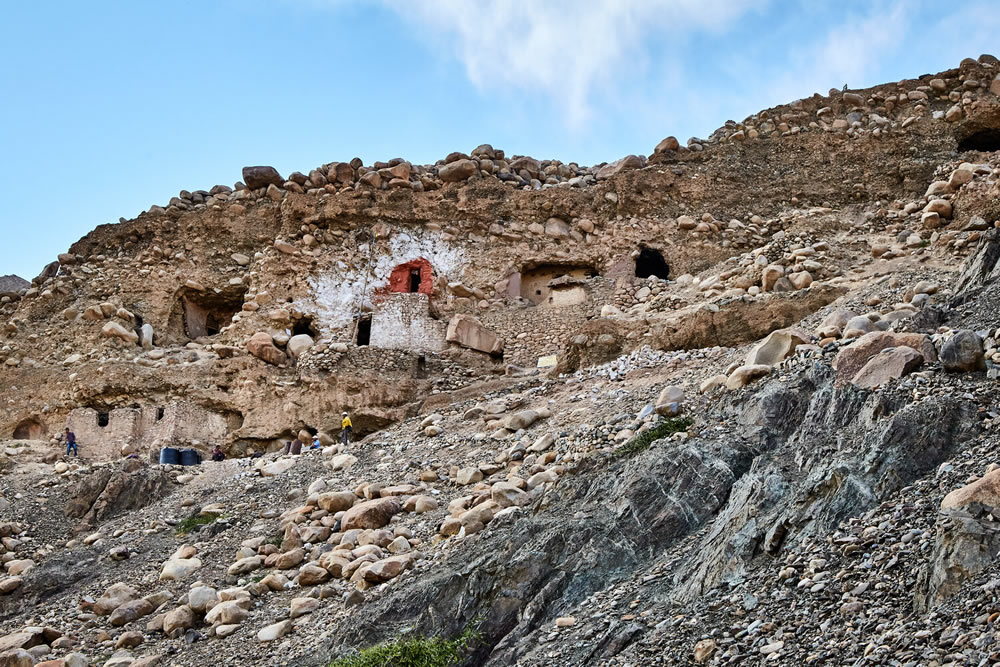
An archeological dig site near the Kargil region in Ladakh. The history of Ladakh dates back to several centuries. Researches are continued to be performed and new findings are being made challenging existing theories.
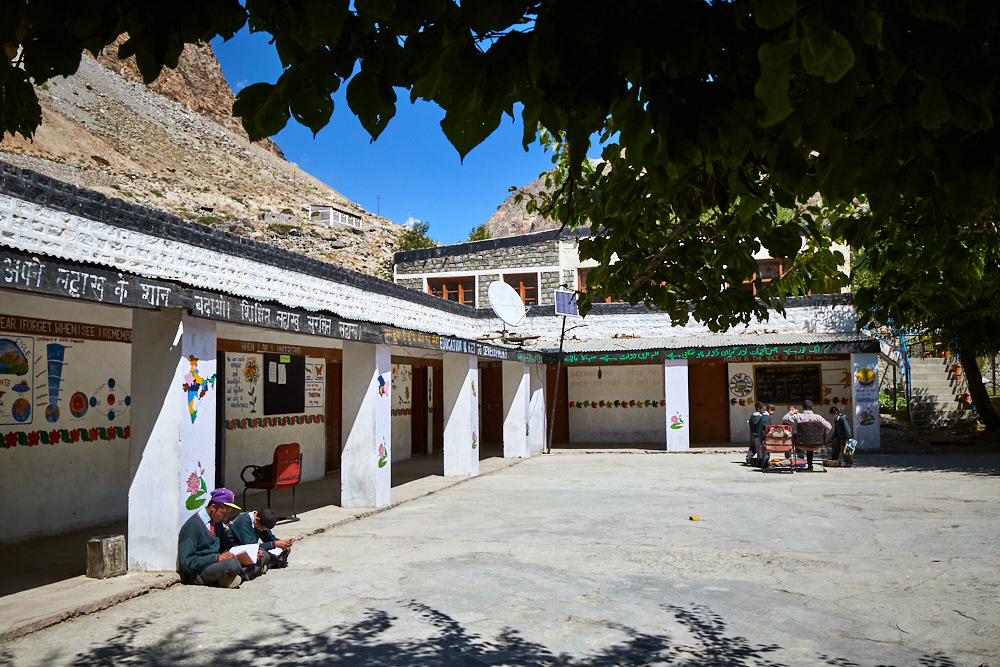
Students are spending a quality study time under the sun and shade in a remote village school. Even in the very remote villages education is seen as a priority for the children.
About Bhagi Siva
Hi, I’m Bhagi Siva, a Travel and Documentary Photographer, born and raised in Sri Lanka and now living in Sydney, Australia. My body of work usually revolves documenting the way we live and our connection to the world through our actions and inactions. When I don’t shoot then I would probably spend my time thinking about a vibrant old culture, a rural village, a storytelling stranger, and a sunrise over the valley of rivers and rice fields. Either way Travel and photography is a part of my existence and probably could be a reason too.
I have won few awards and been shortlisted as a finalist in the prestigious Travel Photographer of the year awards (TPOTY) twice in 2017 & 2018 and also twice in the Australian Photographer of the year awards by Australian photography magazine.
My photographs and documentary works have been published in various publications including National Geographic, Lonely Planet, Wall street journal, Fujifilm Australia, Fujifilm India, Getty images, Shotkit, Australian photography magazine, Sri Lankan Airlines and various other local/international magazines, etc.
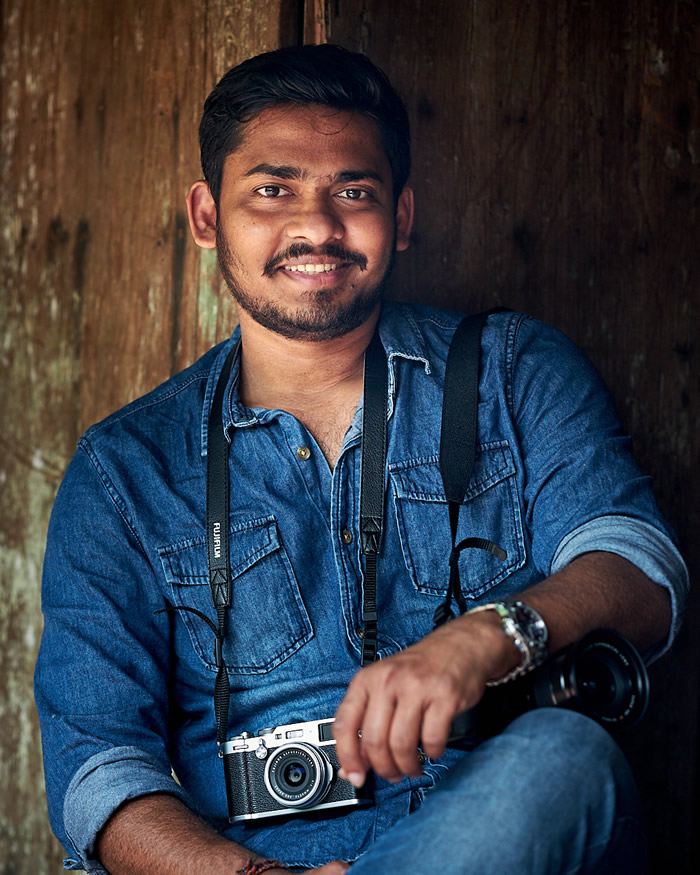
You can find Bhagi Siva on the Web:
Copyrights:
All the pictures in this post are copyrighted to Bhagi Siva. Their reproduction, even in part, is forbidden without the explicit approval of the rightful owners.

